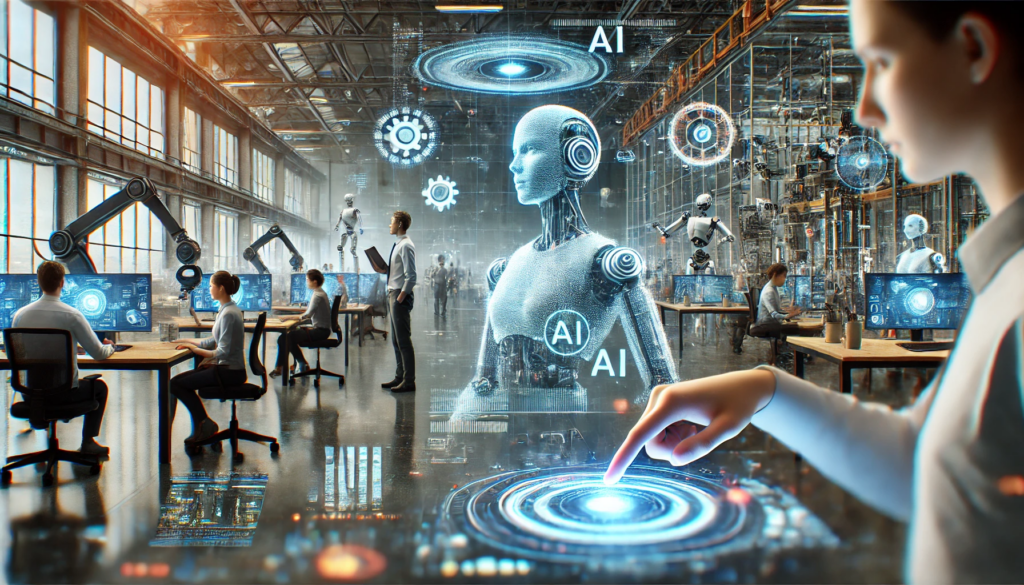This week’s MondayLive! continued the March theme by shifting the focus from the readiness of buildings and technology to the readiness of the workforce. It highlighted the importance of equipping workers with the skills and knowledge to leverage AI tools effectively. The discussion underscored that AI readiness is not just about technology but also the human element—ensuring that the workforce can adapt to and thrive in an AI-driven environment. This aligns with the broader theme of preparing the industry for a future where AI plays a central role in operations and decision-making.
“AI isn’t replacing workers; it’s really AI-ready workers that are going to be replacing those who are not”
Anto
AI as a Tool, Not a Replacement:
The session emphasized that AI is not about replacing human workers but about augmenting their capabilities. AI-ready workers are those who can effectively use AI tools to enhance their productivity and decision-making. For example, AI can automate repetitive tasks, analyze large datasets, and provide insights, allowing workers to focus on more strategic and creative aspects of their jobs. The key takeaway is that workers who embrace AI as a tool will have a competitive edge over those who do not.
Workforce Readiness:
The workforce is in a transitional phase, with varying levels of readiness for AI adoption. Younger workers, who are more tech-savvy and accustomed to digital tools, are in charge of adopting AI. However, older workers may need more time and training to become comfortable with AI technologies. The discussion highlighted that while some workers already use AI for tasks like content creation and data analysis, others are still in the early stages of understanding how AI can benefit their roles. The industry needs to invest in training and education to bridge this gap.
Agentic AI:
Agentic AI refers to AI systems that can perform specific tasks autonomously, without requiring constant human input. These AI agents can handle tasks like data collection, analysis, and even decision-making, making them valuable tools for industries like building management. For example, an AI agent could monitor a building’s energy usage, identify inefficiencies, and suggest optimizations without human intervention. The concept of agentic AI is seen as a game-changer because it allows for more efficient and scalable operations, especially in industries with complex systems.
Industry Adoption:
The adoption of AI varies across different sectors. In marketing and software development, AI is already being used extensively for tasks like content generation, code optimization, and customer insights. However, in industries like construction and facility management, AI adoption is slower due to challenges like a lack of structured data and resistance to change. The session highlighted that industries with more structured data and a culture of innovation are likely to adopt AI faster, while others may need more time to overcome barriers like data fragmentation and workforce readiness.
AI in Building Management:
AI has the potential to transform building management by automating routine tasks, optimizing energy usage, and improving overall efficiency. For example, AI can be used to predict equipment failures before they happen, optimize HVAC systems for energy efficiency, and even manage security systems. The discussion also touched on the concept of “smart buildings,” where AI integrates various systems (like lighting, HVAC, and security) to create a more efficient and responsive environment. The challenge lies in making these AI-driven systems accessible and understandable to building managers and technicians, who may not have a technical background.
Conclusion:
The session reinforced the idea that AI readiness is not just about technology but also about preparing the workforce to use these tools effectively. As AI continues to evolve, industries must focus on both technological integration and workforce development to fully realize its benefits. The concept of agentic AI, in particular, offers a glimpse into a future where AI systems work autonomously to optimize operations, making industries more efficient and responsive to changing needs.
This post was written with the assistance of Gemini AI and Deepseek.
watch the session here:
Part 1 and 2 of “Are We AI Ready?
AutomatedBuilding’s goal is to create a self-sustaining resource for the industry—created by the industry, for the industry, and for the world to better understand our smarter building value. Ask about sponsorship and how you can participate!



